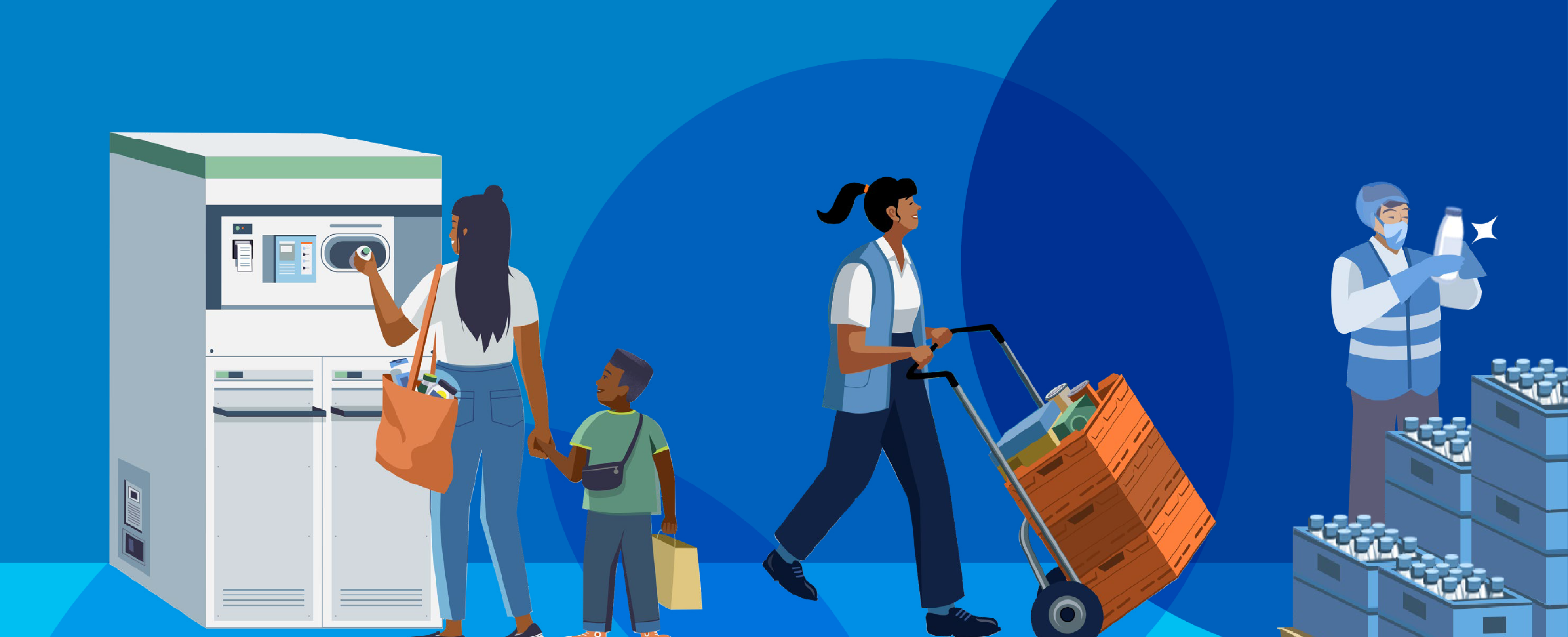Our latest study shows that returnable packaging has the potential to offer significant environmental benefits, and – once scaled up using the right approach – can compete with the economics of single use packaging for certain products.
The ‘Scaling Returnable Packaging’ study focuses on returnable packaging, which once bought and returned by customers, is professionally cleaned and refilled before being sold again. It highlights the benefits of adopting reusable plastic packaging for beverage, food cupboard, personal care, and fresh food items, when designed collaboratively across the industry and operated at large scale. In the most ambitious scenario, returnable plastic packaging could lower greenhouse gas emissions and water use, by 35% to 70% compared with single-use plastics.
Developed in partnership with Systemiq and Eunomia, and with input from more than 60 organisations including the European Investment Bank, national governments, reusereuseThe repeated use of a product or component for its intended purpose without significant modification. experts and major brands and retailers such as Danone, Nestlé, PepsiCo, The Coca-Cola Company, and Unilever.
Recent findings in the Foundation’s ‘Global Commitment Five Years In’ paper suggest that without a significant shift towards reuse, worldwide virgin plastic use in packaging is unlikely to decrease below today’s levels before 2050. It identified the scaling of reuse as one of the key hurdles to overcome in reversing the tide on plastic waste and pollution.
To drive global change, the Foundation is calling on leaders across the private, public and finance sectors, to take a fresh approach to expand a reuse revolution through shared infrastructure, packaging standardisation, and to work collaboratively to reach high return rates.
Our study offers a positive vision. It shows what can be achieved if:
we propel reuse models from pilot to mainstream,
we harmonise packaging design and standards,
we share collection and sorting infrastructure
Then we can make the economics work and unlock huge environmental benefits. It’s time for a reuse revolution.
Explore the study at emf.org/reuse-revolution







